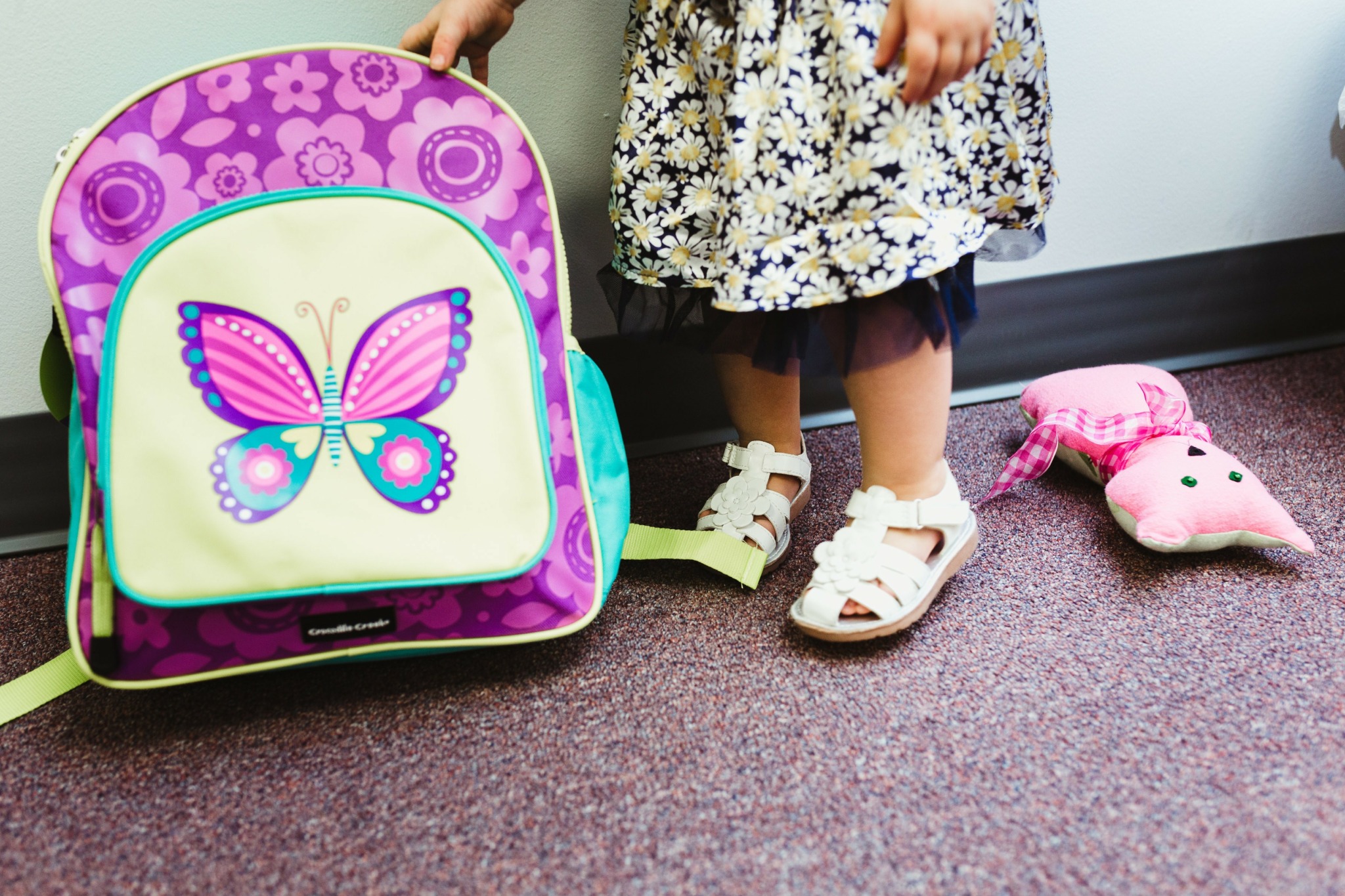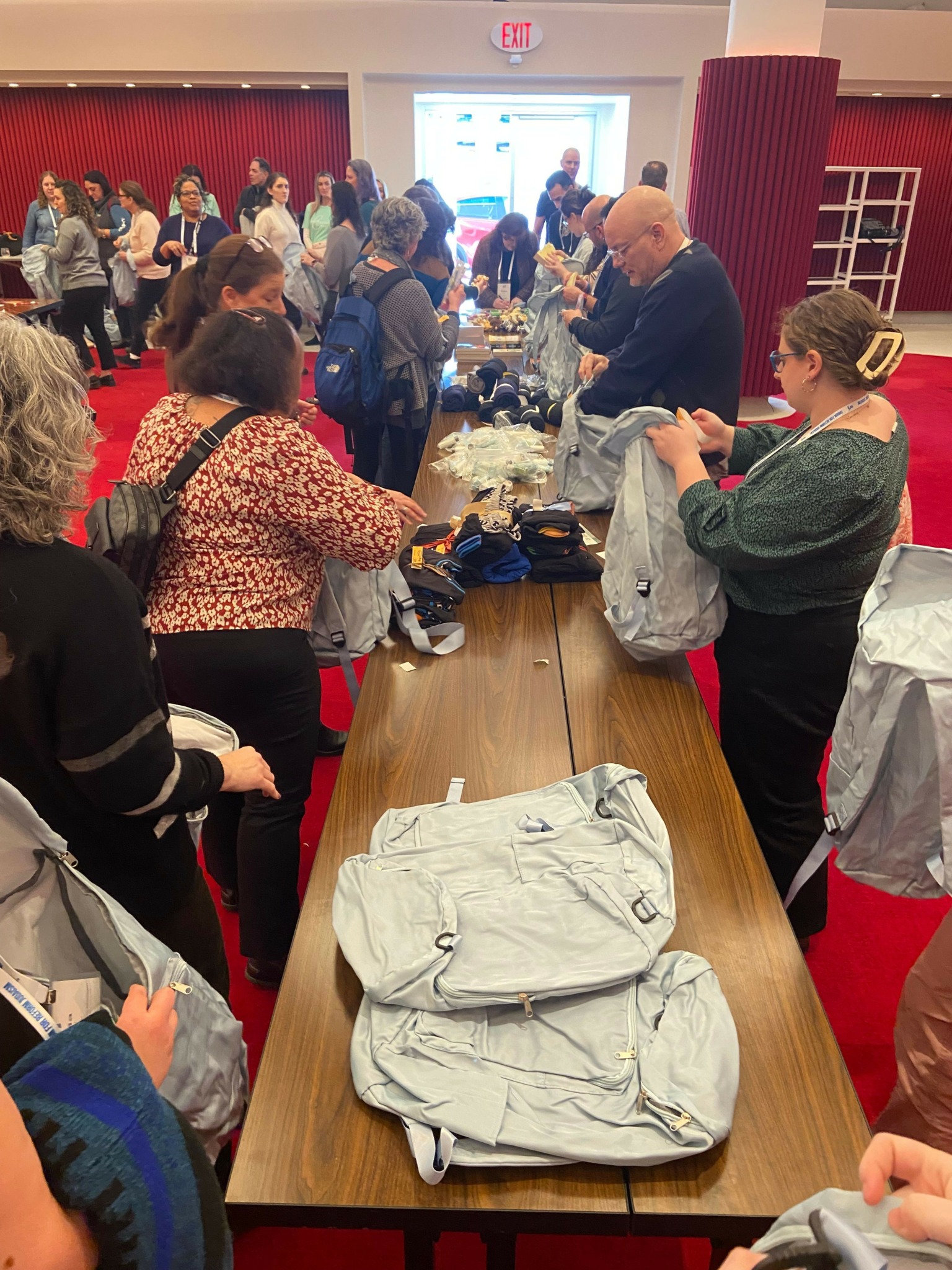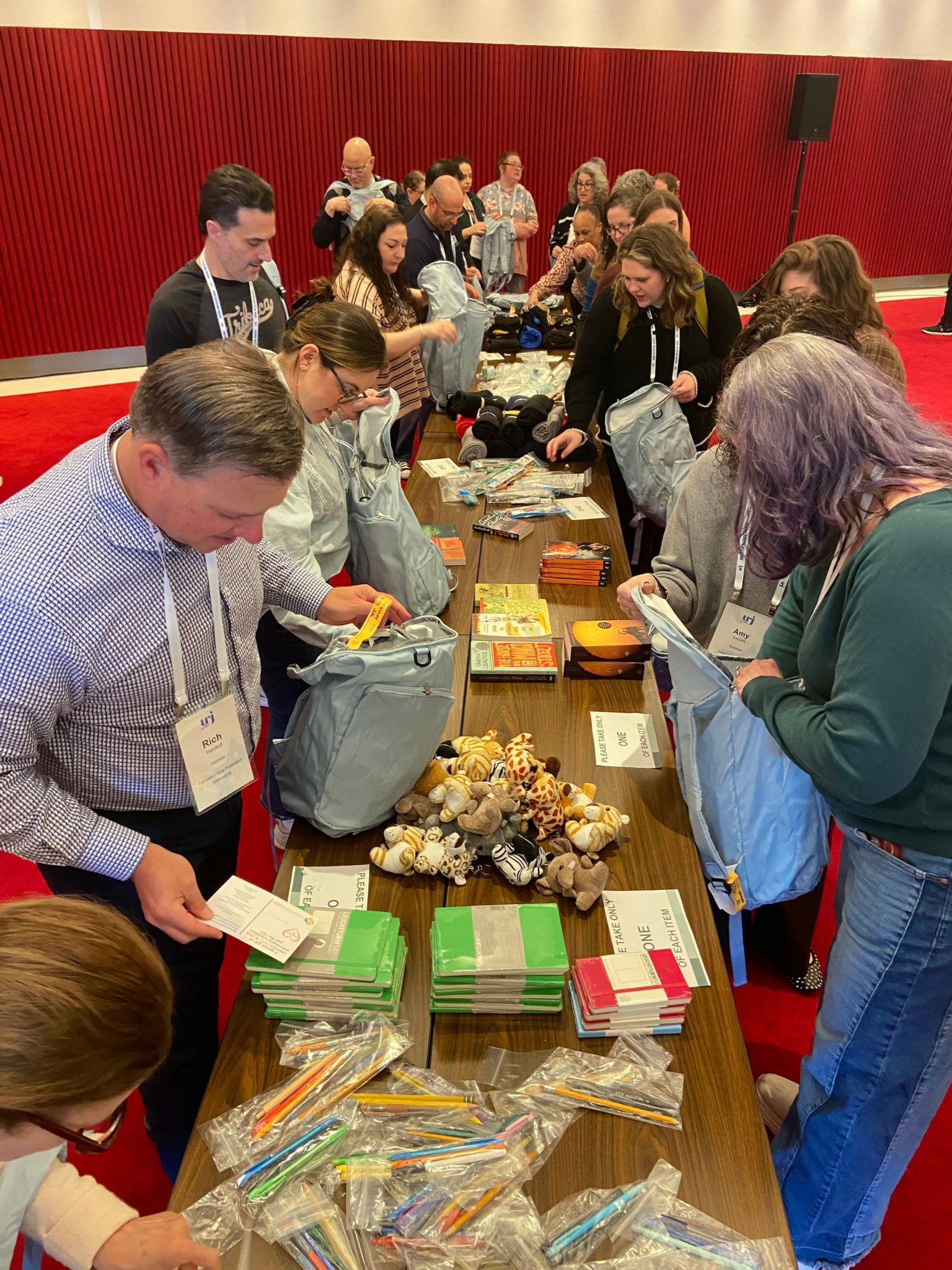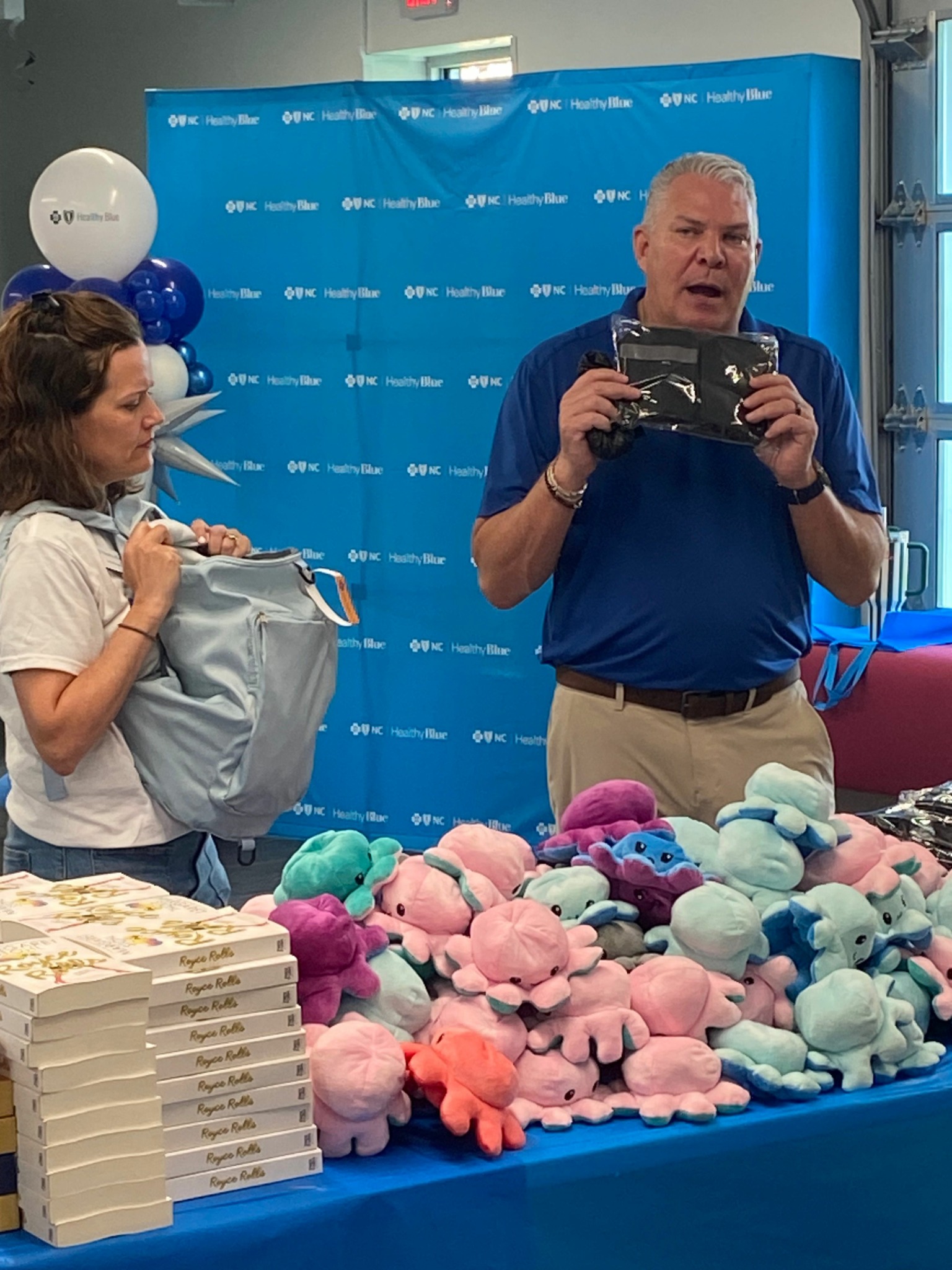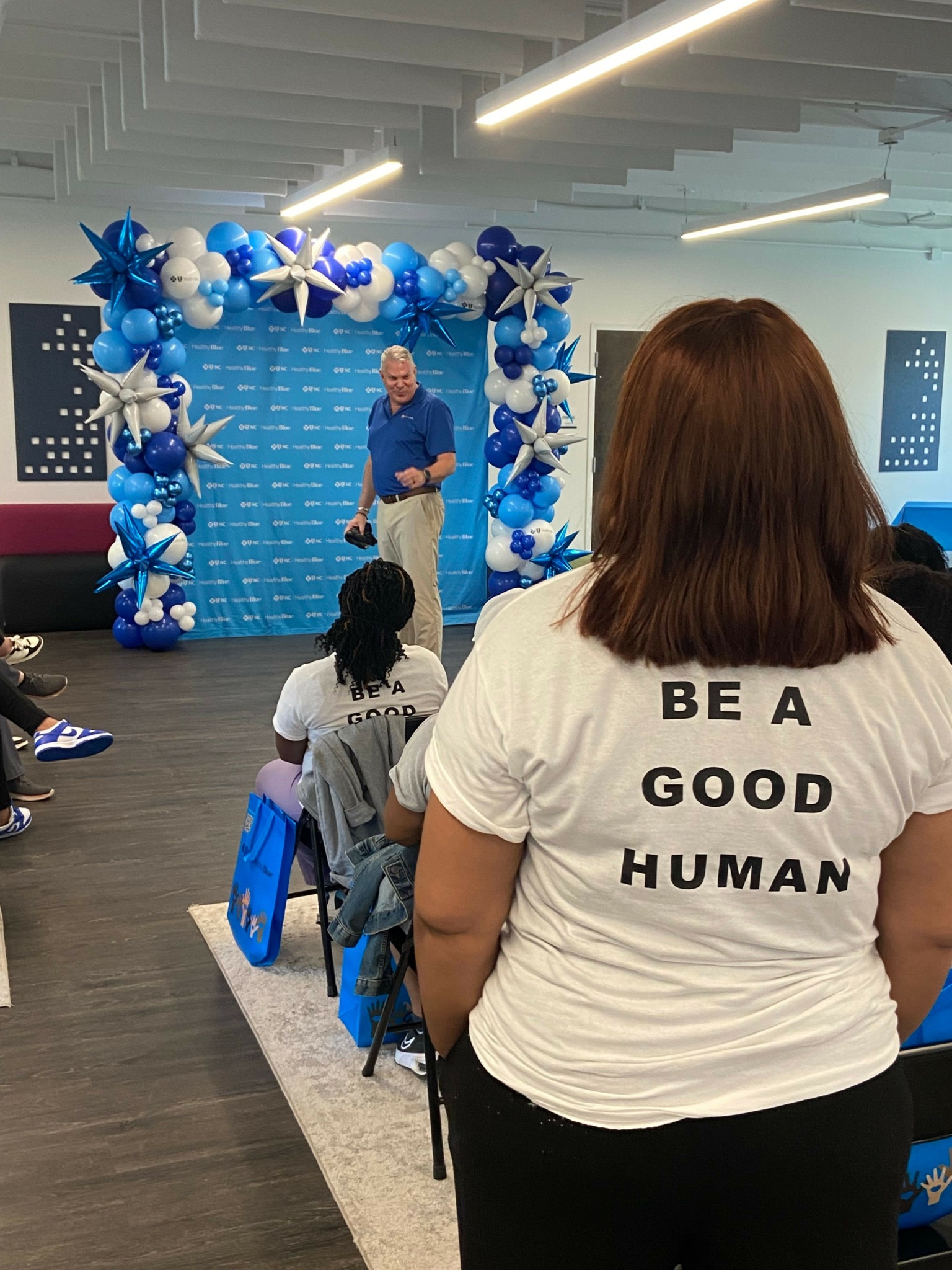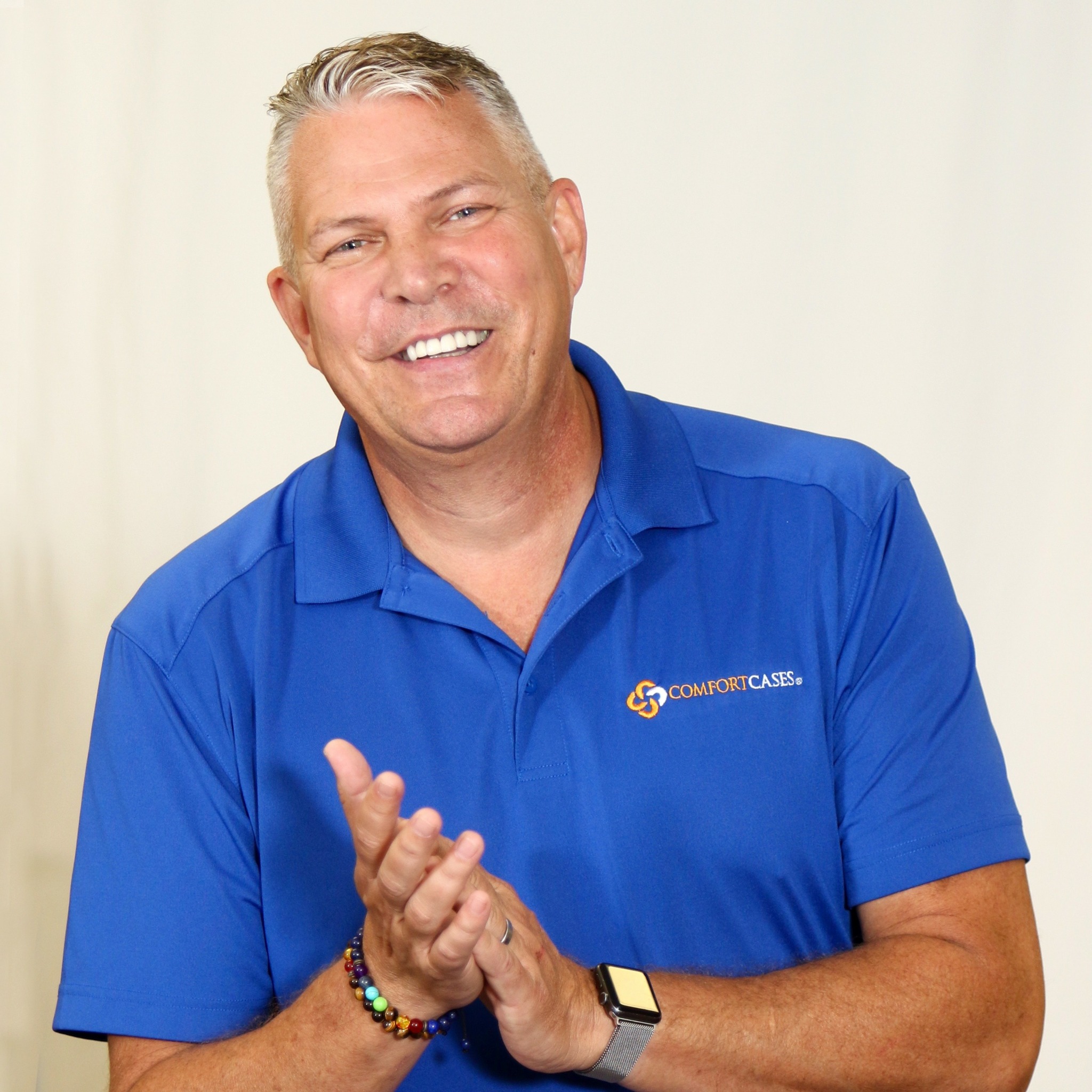We’re excited to introduce you to the always interesting and insightful Rob Scheer. We hope you’ll enjoy our conversation with Rob below.
Rob, thanks for taking the time to share your stories with us today Coming up with the idea is so exciting, but then comes the hard part – executing. Too often the media ignores the execution part and goes from idea to success, skipping over the nitty, gritty details of executing in the early days. We think that’s a disservice both to the entrepreneurs who built something amazing as well as the public who isn’t getting a realistic picture of what it takes to succeed. So, we’d really appreciate if you could open up about your execution story – how did you go from idea to execution?
At age 12, I entered foster care with my belongings stuffed into a trash bag. That experience didn’t just stay with me—it shaped me.
Years later, shortly after I turned 18, I came home from school to find my foster parents at the front door—trash bag in hand.
“You’ve aged out,” they told me. “We’re no longer receiving a check from the government. You have to leave.”
“Leave?” I asked. “This is my home.”
“No,” they said. “It’s our home. You’ve just been living here.”
I was a high school senior. I was homeless and carrying the few belongings I had in a trash bag. Was this going to be my life?
I had every reason to give up, but I chose to push forward. I graduated high school. I joined the Navy—not to serve my country, but because I needed shelter and three meals a day. After my service, I built a career in finance and became a successful entrepreneur, owning mortgage companies across the country.
Years later, I met Reece, the man who would become my husband. Eventually we decided we wanted a family. I suggested adopting internationally. Reece suggested we adopt from foster care. I hesitated—“I know those kids. I was one of those kids”—but he was right (and not for the last time!)
We went through the long process of becoming foster parents. The day finally came—and two beautiful children arrived at our home…carrying trash bags. My heart dropped. Decades had passed, but nothing had changed. Trash bags, still?
Soon after, we were called about two young brothers. They came to live with us. And again, thy arrived with trash bags for their things. Again?
We gave our children everything: the best schools, designer clothes, vacations. But a few years later, as we were planning our annual toy drive, I had a different idea. I pulled out my old trash bag from the back of my drawer and said, “We’ve given our kids everything. Now it’s time to teach them empathy—and change the system.”
That year, with friends and family, we packed a few backpacks filled with pajamas, blankets, hygiene items, books, and stuffed animals, and delivered them to local agencies to deliver to youth experiencing foster care. That grassroots effort became Comfort Cases®—officially founded as a nonprofit in 2013 to bring dignity and hope to youth in foster care.
And the need was—and still is—staggering: there are more than 368,000 youth currently in foster care in the United States, with more than 700 children entering the system every single day. For far too many, a trash bag is still the standard for carrying what little they own. We knew we had to be more than a charity—we had to create a movement.
We didn’t start Comfort Cases with a master plan—but we ran it like a business from day one. We created structure, set goals, and focused on systems that could scale. We developed a standard set of items for every backpack, built partnerships with manufacturers and distributors, and organized large-scale “packing parties” to engage volunteers and companies. We also made an intentional decision not to rely on government funding. Instead, we cultivated a diversified mix of individual donors, private foundations, corporate sponsorships, and proceeds from speaking engagements.
In 2018 Simon & Schuster/Derek Jeter Publishing published my memoir, “A Forever Family”.
While on tour for the book, I was invited to speak at a school in Maryland. Afterward, a young man named Alex came up to me and asked me to sign his copy. I learned he had a similar story to mine: He had grown up in multiple foster homes and had recently turned 18 with no plan for what will happen as he ages out of the foster care system. We invited him to visit our family. He played with our kids. We had dinner together. After dropping Alex off at his foster home, my son said, “We need to do something for Alex. We need to bring him home.” Reece looked at me and said, “What’s one more?”
Alex moved in with us shortly after. And at age 22, we adopted him, officially becoming our son. Our family was and is full.
Since launching, Comfort Cases has distributed over 265,000 backpacks and Comfort XL duffels to children in foster care across the U.S., Puerto Rico, and the United Kingdom. We’re now working to change legislation as well. In 2023, Maryland and Texas passed laws banning trash bags in foster care placements—and more states are following, including New York and Oregon. Our model is 96% volunteer-run, built on partnerships with people and businesses who share our belief that no child should feel disposable.
Entrepreneurship isn’t always about profit—it’s about solving a problem and scaling a solution. Comfort Cases was born from lived experience, built with business principles, and sustained by purpose.
We turned a trash bag into a movement. And we’re just getting started.
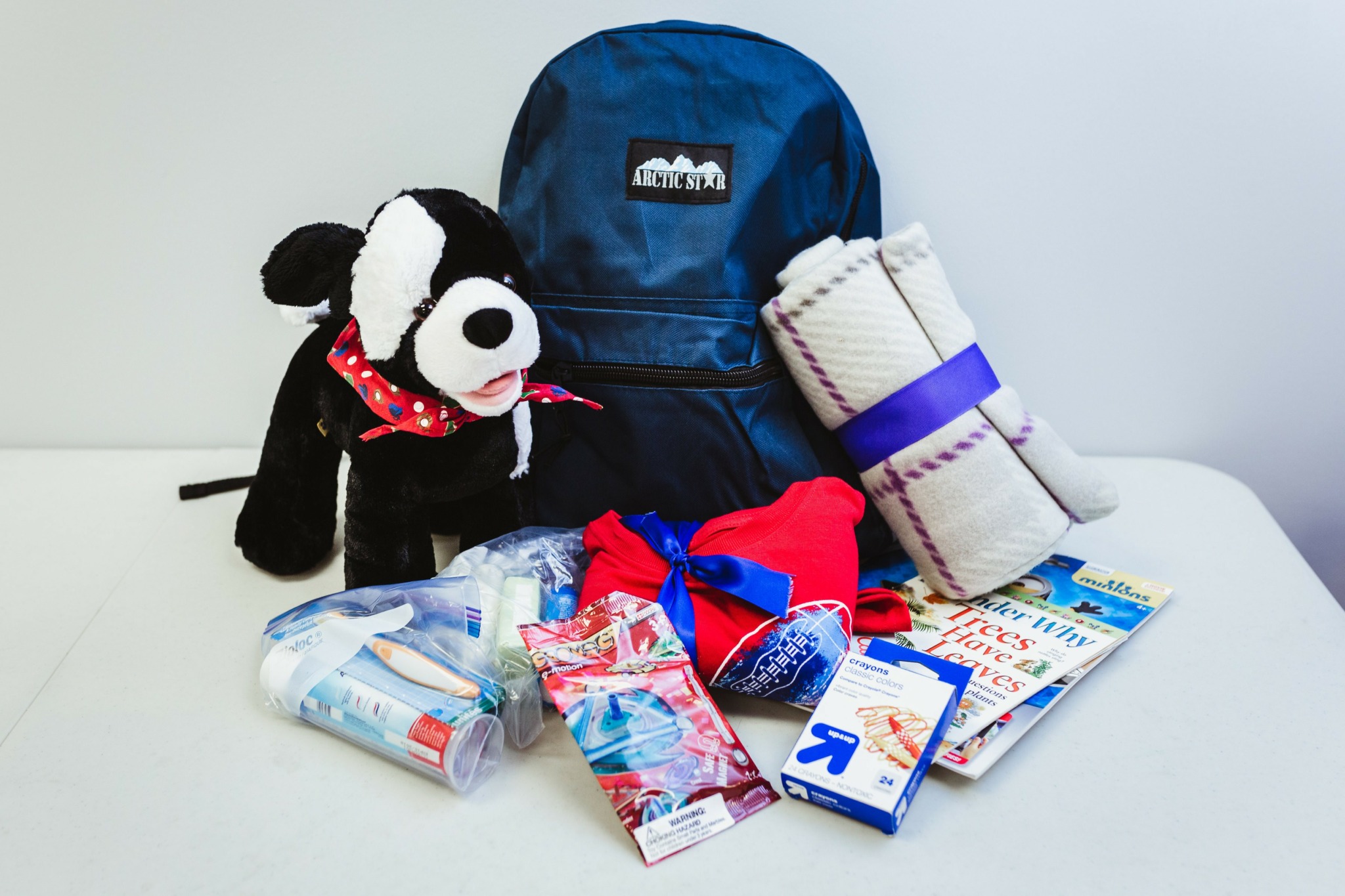
Rob, before we move on to more of these sorts of questions, can you take some time to bring our readers up to speed on you and what you do?
Comfort Cases® is a nonprofit organization on a mission to eliminate the practice of trash bags being given to youth in the foster care system and restore dignity to the lives of children entering care. Every Comfort Case backpack is filled with carefully selected essentials—a brand-new pair of pajamas, a blanket, hygiene items, a book, a stuffed animal and an affirmation card signed by the Good Human who packed that backpack—items that are both practical and deeply symbolic. They send a clear message: You matter. You are loved. You are not invisible.
The organization was founded in 2013 by Rob Scheer, a former foster youth who—after building a successful career in finance and becoming a father through foster care—saw firsthand that children were still arriving with nothing but a trash bag for their belongings. What began as a grassroots effort with family and friends packing backpacks around the kitchen table has grown into a movement that’s impacted over 265,000 youth across the United States, Puerto Rico, and the United Kingdom.
Comfort Cases stands apart because we’ve combined heart with operational rigor. We didn’t have a blueprint, but we approached this like a business—because the stakes are too high to rely on goodwill alone.
Operations: We standardized every item that goes into a Comfort Case, sourced materials in bulk, developed a fulfillment and inventory tracking system, and created toolkits so schools, companies, and individuals could host “packing parties” in their own communities.
Funding Model: Unlike many nonprofits, we do not rely on government funding. Our revenue model is diversified and intentionally built for sustainability. We receive support through individual donations, corporate sponsorships, foundation grants, and proceeds from speaking engagements and media—especially Rob’s 2018 memoir, A Forever Family (Simon & Schuster / Derek Jeter Publishing).
Culture: Our organization is 96% volunteer-run. From the beginning, we’ve built a culture of action—empowering people not just to give, but to do. Whether it’s filling backpacks, fundraising, or advocating for change, we’ve made it easy for people to get involved and feel connected.
Branding & Storytelling: Comfort Cases isn’t just about delivering items—it’s about delivering dignity. Our brand is rooted in hope, resilience, and belonging. That clarity has helped us build a powerful presence, both online and in communities. We maintain a highly engaged following of over 300,000 across platforms like Facebook, Instagram, LinkedIn, and TikTok, where our daily posts and live event content help amplify the voices and stories behind our mission.
Our podcast, “Fostering Change”, is another major tool for impact. Shared across all podcast platforms and YouTube, the show features conversations with thought leaders, advocates, former foster youth, adoptive families, and others working to change the system from within. We use highlight clips, trailers, and social content to extend each episode’s reach—and turn listeners into engaged supporters.
The need is urgent. There are more than 368,000 youth currently in foster care in the U.S., and over 700 children enter the system every day. For too many, the trauma of removal is compounded by the indignity of being handed a trash bag. We’re working to change that—not only through our programs, but by supporting legislation that bans the use of trash bags entirely. Our organization has helped pass laws in Maryland and Texas, and we’re actively supporting similar bills in multiple states.
Comfort Cases isn’t just a charity—it’s a model for how business principles, lived experience, and community-driven action can create lasting change. We’re solving a tangible problem with scalable systems—and building a movement fueled by empathy and purpose.
Because no child should ever feel disposable.
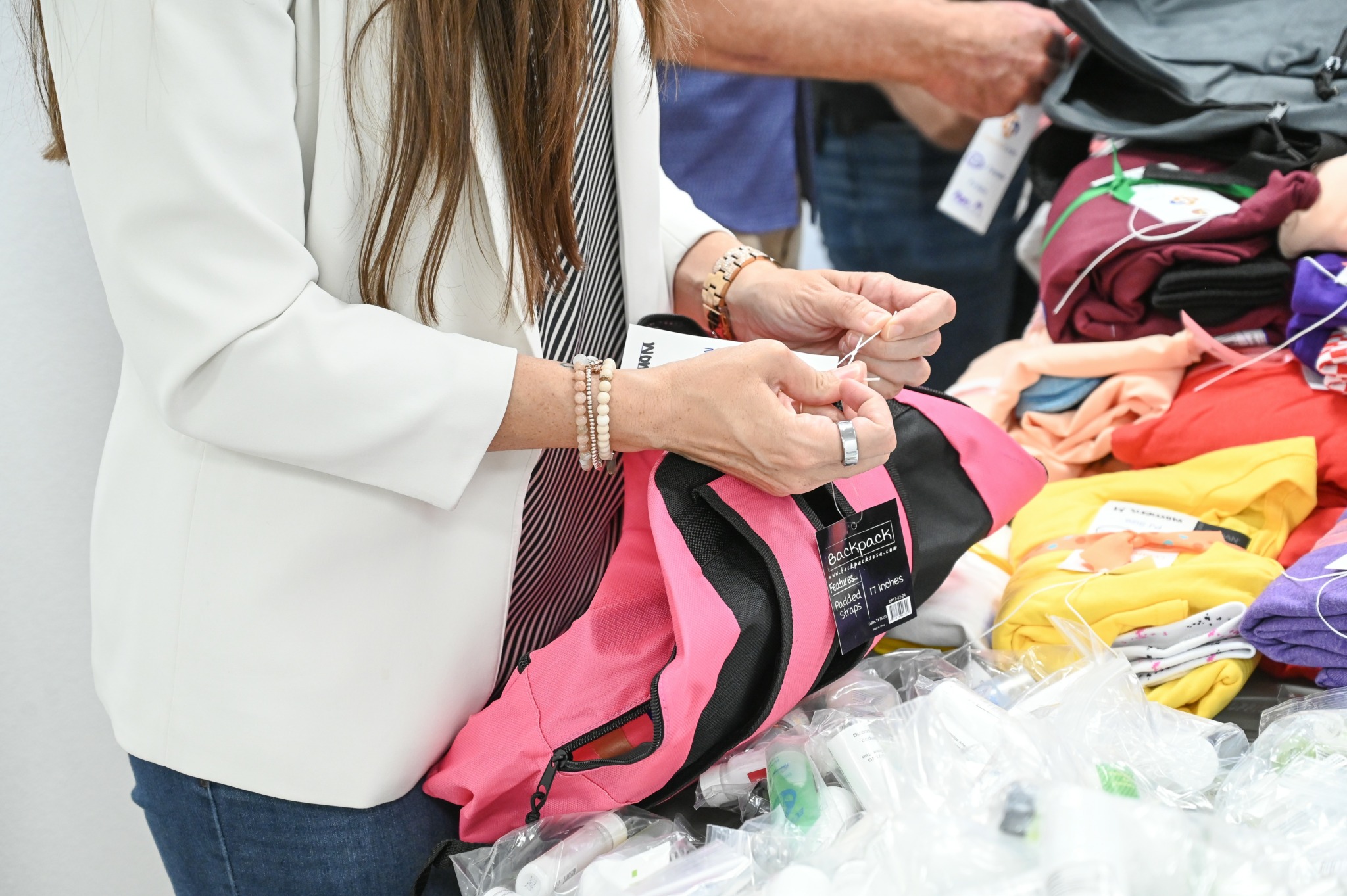
What’s a lesson you had to unlearn and what’s the backstory?
“I had to unlearn the idea that success is measured by what you take. In the world I came from—mortgages, banking, the dot-com boom—success was all about accumulation: more deals, more growth, more returns. I lived that life. I wore the suits, sat in the boardrooms, flew first class. But when I founded Comfort Cases, I realized that model wasn’t going to cut it. In the nonprofit world, success isn’t measured by what you get, it’s measured by what you give—and more importantly, how you give it. It was a shift in mindset I wasn’t expecting. I had to trade in my business instinct to protect margins for a new instinct to protect mission.”
“That said, I didn’t throw away what I learned—I just had to rewire it. I still run Comfort Cases like a business. We have KPIs. We measure impact. We track inventory like a supply chain operation. But we also lead with empathy and purpose. Many nonprofits rely on passion alone, and while passion is critical, so are structure, process, and accountability. I had to unlearn the hustle culture of profit-at-all-costs and relearn how to build something that doesn’t just serve people—but uplifts them. Comfort Cases exists because of that unlearning—and because we believe dignity should never be optional.”
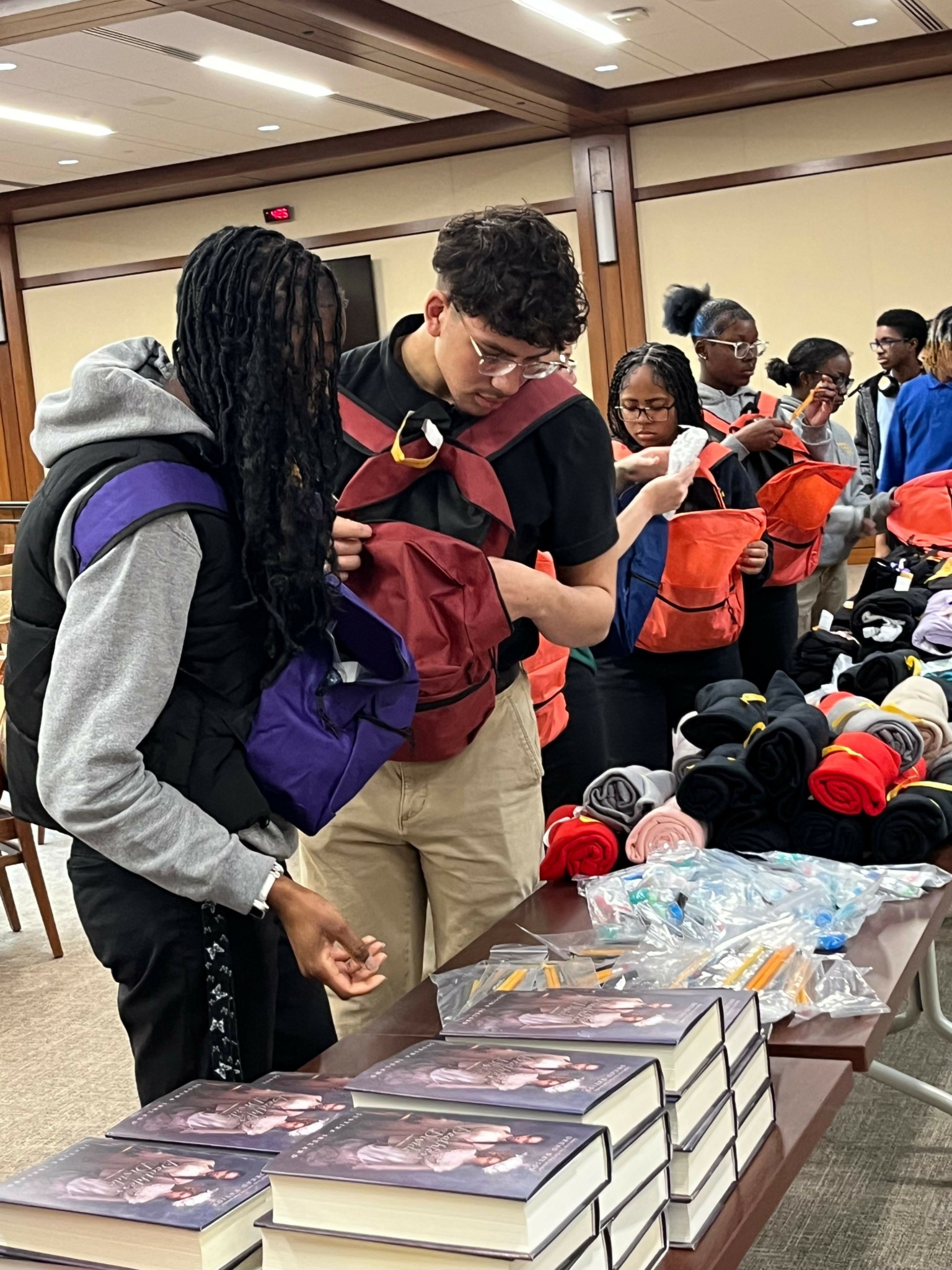
Any insights you can share with us about how you built up your social media presence?
Comfort Cases was built on social media—literally. A major turning point came when Upworthy shared a video about our family and our mission. https://www.upworthy.com/when-this-man-told-his-foster-care-story-people-listened-39-million-people. In just over a week, more than 39 million people across the world had seen it. That kind of exposure doesn’t just bring attention—it brings momentum. We started hearing from volunteers, donors, and media outlets we’d never dreamed would find us. But what made the real difference was how we used that moment.
We leaned in hard—sharing the video across Facebook, Twitter/X, Instagram, LinkedIn and eventually TikTok, where we now have over a million likes and shares. We’re very active on social media, with more than 300,000 followers—we post multiple times a day, every day. We highlight our volunteers, staff, and family. We go live at events, post photos and videos of people packing backpacks, and constantly show the impact our community is making. It’s not just about asking people to donate—it’s about making them feel like they’re part of something bigger.
A major extension of that storytelling effort is our award-winning podcast, “Fostering Change”. We launched it to spotlight the real voices behind foster care and adoption—from social workers and former foster youth to nonprofit leaders, authors, and celebrities. It streams across all major podcast platforms and on YouTube, and we amplify each episode with trailers, highlight clips, and quotes across social media. It’s become a powerful tool not just for education, but for brand-building. People may discover Comfort Cases through a reel or a quote, but they stay connected through the conversations we host. Now entering it’s 7th Season, Fostering Change has consistently been ranked the top podcast for issues regarding foster care and adoption.
“If you’re just starting out, here’s my advice: Don’t wait to be perfect—just be consistent. Post real stories. Show behind-the-scenes moments. Celebrate your team. Let people see your heart and your hustle. You never know which story, or which day, will be the one that makes your audience say: ‘I want to be part of that.’”
Contact Info:
- Website: https://www.comfortcases.org
- Instagram: @comfortcases
- Facebook: https://www.facebook.com/comfortcases
- Linkedin: https://www.linkedin.com/company/comfort-cases-inc-/
- Twitter: @comfortcases
- Youtube: https://www.youtube.com/@comfortcases
- Other: Fostering Change Podcast: https://open.spotify.com/show/6tSWSLs0ScWU1AFP7lykcy?si=1a727b6e3dca4f2f
https://www.youtube.com/@comfortcases/videos
